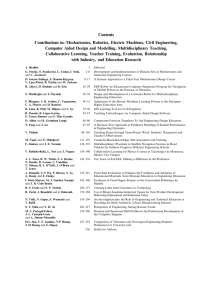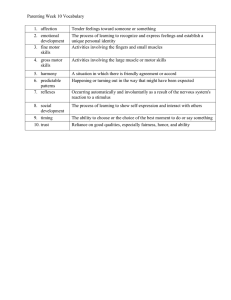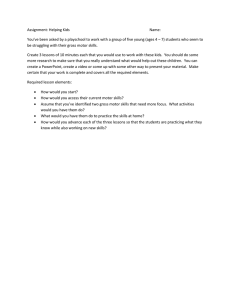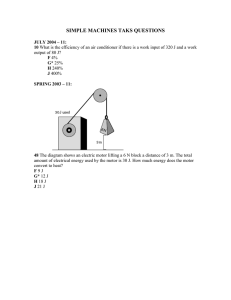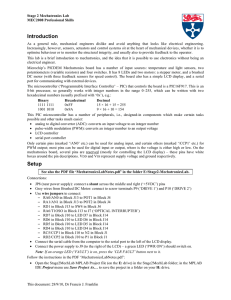MECH 550Q: Advanced Mechatronics
advertisement
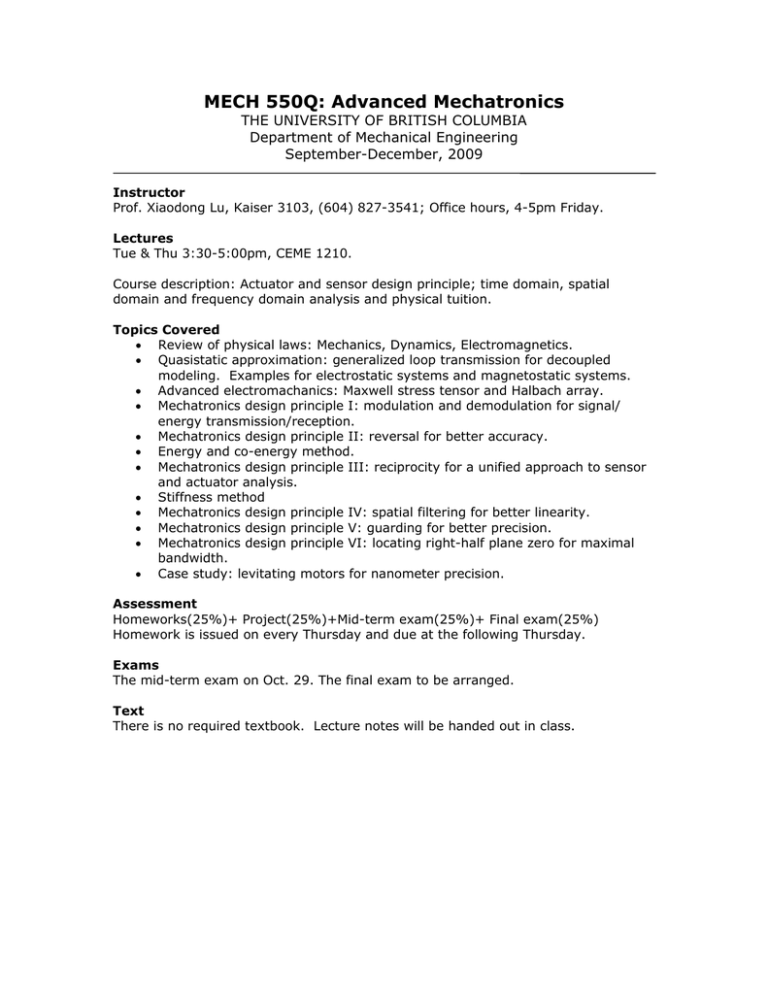
MECH 550Q: Advanced Mechatronics THE UNIVERSITY OF BRITISH COLUMBIA Department of Mechanical Engineering September-December, 2009 Instructor Prof. Xiaodong Lu, Kaiser 3103, (604) 827-3541; Office hours, 4-5pm Friday. Lectures Tue & Thu 3:30-5:00pm, CEME 1210. Course description: Actuator and sensor design principle; time domain, spatial domain and frequency domain analysis and physical tuition. Topics Covered • Review of physical laws: Mechanics, Dynamics, Electromagnetics. • Quasistatic approximation: generalized loop transmission for decoupled modeling. Examples for electrostatic systems and magnetostatic systems. • Advanced electromachanics: Maxwell stress tensor and Halbach array. • Mechatronics design principle I: modulation and demodulation for signal/ energy transmission/reception. • Mechatronics design principle II: reversal for better accuracy. • Energy and co-energy method. • Mechatronics design principle III: reciprocity for a unified approach to sensor and actuator analysis. • Stiffness method • Mechatronics design principle IV: spatial filtering for better linearity. • Mechatronics design principle V: guarding for better precision. • Mechatronics design principle VI: locating right-half plane zero for maximal bandwidth. • Case study: levitating motors for nanometer precision. Assessment Homeworks(25%)+ Project(25%)+Mid-term exam(25%)+ Final exam(25%) Homework is issued on every Thursday and due at the following Thursday. Exams The mid-term exam on Oct. 29. The final exam to be arranged. Text There is no required textbook. Lecture notes will be handed out in class. Tentative Schedule Lecture 1 2 3 4 Content Course introduction; Superposition; Review of math and physics: physical laws and Maxwell equations. Example applications of Maxwell equations and boundary conditions Quasistatic approximation. Electroquasistatic system (EQS) example 5 Magnetoquasistatic system (MQS),solenoid air-gap example, Demo;DC motor analysis MQS Modulation 6 Fourier analysis of modulation 7 8 Reversal Two-phase motor and improved commutation Reversal principle, 1+(-1)=0 Reversal. Image method. LVDT 9 Permanent magnet. Magnetic charge point of view. 10 11 12 Energy and co-energy method. MQS example EQS example. DC motor distributed winding and spatial filtering. 15 ReciprocityGeneralized Reciprocity Maxwell reciprocal principle; Structural dynamic systems Symmetry of inductance matrix DC motor analysis Structural dynamics General structural reciprocity Piezoelectric effect, load cell Piezo actuator analysis 16 Voice coil motor 17 Spatial filter 18 Motor evolution, linear motor 19 Levitating motor, Maxwell Stress Tensor 20 Halbach array and levitating planar motor design 21 Case study 22 Non-Minimum Phase system 13 14
